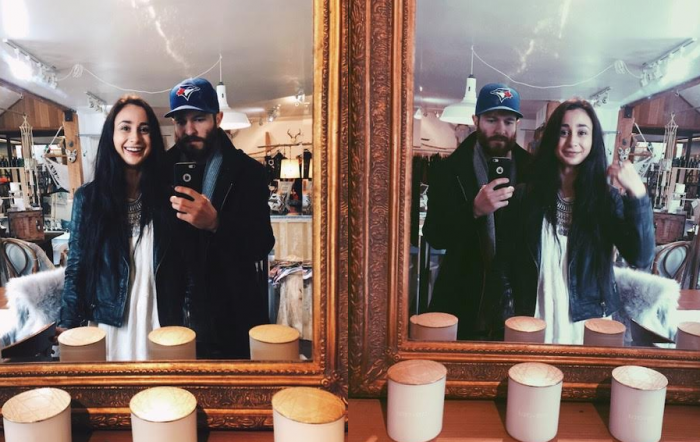Each and every day I sit with pain.
Pain that is caused by patriarchy and perpetuated by toxic masculinity. Pain that brings women to find refuge in my office.
I am a trauma therapist whose past career in advocacy leads women who have experienced sexual violence and abuse to find solace in my space. I come to this field of work with an extensive lived experience. I am a survivor of childhood sexual exploitation and have experienced both sexual violence and abuse as an adult woman.
As a result of these experiences, I have so many reasons to fear men. Reject men. Hate men. For years I did just this, but in the era of the #MeToo movement, my heart can no longer hold hatred.
Because even though I hear stories every day that could validate these beliefs from the intimate dialogues I am privileged to experience—stories that demonstrate that masculinity is dangerous, toxic, harmful—and despite the dismantlement of men in the media to a conventional narrative of animalistic and dangerous, I cannot feel anything but compassion for men.
I have compassion for men because I am privileged each day to intimately witness the effects of toxic masculinity. I need compassion to be able to hold the stories of sexual violence and abuse shared with me. I need compassion for men so that I can support the women who find shelter in speaking with me. Due to these honest and humbling conversations, I am forced to look around and ask myself: how did we get here?
How did we get to a place of such oppression and violence between genders—where women are automatically victims and men perpetrators? I ask myself are we moving forward to equality through disequilibrium? Is what I am doing enough? Will anything ever be enough for the violence to end and for all of us to be free to experience both our feminine and masculine parts equally?
How do we all move forward when there is such pain dividing? Circulating. Being re-enacted. Stereotypes. Misconceptions.
My life experiences and professional training do not lead me to many black and white statements. If anything, becoming and holding the space of a therapist has only made me see more complexity within simplicity and be more comfortable with the unknowing shades of grey.
However, there is one statement that is black and white from my lens, and that is: when we hurt another, we hurt ourselves too.
I have never met a man who hurt a woman who wasn’t hurting first. But how each gender hurts is different, unique, and socially constructed. Women internalize. Men externalize. But the pain is the same. Men know the same gut-wrenching travesty of being traumatized, they know heartbreak, they know sorrow, and they know how to stuff sh*t down.
Men feel—I promise you this. The level of disembodiment a female survivor of sexual violence or abuse is left with after an assault, rape, or battery is the same level of disembodiment her perpetrator lived with before he ever placed a hand on her.
Our capitalist society has constructed gender expression for internalization to match one gender and externalization to match another. And while this does not excuse hurt or harm, it does provide a window into the experience of someone else’s world.
I am so privileged because each day I get glimpses into the experiences of both men, women, and those identifying as non-binary. I get to see humans as humans. I get to see men as humans—a rare sighting.
Because I tend to the scars of toxic masculinity and also get to see men in their full vulnerability, I am so passionate about having incredible men in my life, about holding space for men. I crave it. I need it.
I make sure I see at least one male friend a day because I need to physically feel the healthy masculine. I need to know it exists. I need to challenge everything that the world tells me about men—now more than ever. Because I could easily get washed up in the sea of groupthink that is screaming that men are unsafe.
I need to be close to the masculine because hearing stories of how women have been victimized by men could darken me; reading about #MeToo stories could make me bitter. Hearing how sexual assaults are dismissed could make me sick. Photographing another survivor of abuse could make my heart black. Having another client disclose a rape could rip me open and leave me in tears. But after years of practice, these stories instead draw me closer to men.
They draw me closer to compassion. To being different around men. Offering a different experience. One where I do not assume the worst: predator, pickup artist, stoic being, feelingless zombie. One where I don’t see them as my saviour, saint, or protector.
They draw me closer to wanting connections that aren’t colored by past experiences. Connections without projected pain. Connections without my pain.
Having a space where I can put my pain down allows me to facilitate connection where (I hope) the men in my life can just be. In the same way, I have learned to just be with them. Isn’t that what we are all looking for—safe, supportive, honest, honourable, and compassionate connection where we are met as fully human?
~












Read 14 comments and reply